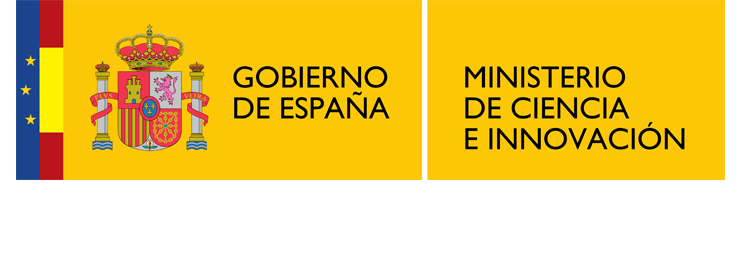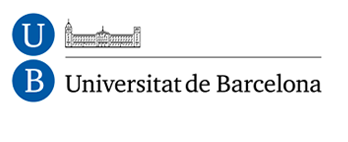Claustra: the project
The CLAUSTRA project began with the research work of the GrupTEFca, (Topografia de la Espiritualitat Femenina a Catalunya), a group formed by investigators of the University of Barcelona interested in the study of feminine monasticism in the Catalan Counties. In 2004 they conceived the idea of starting a fist project based on cataloguing and mapping the spaces of feminine spirituality in medieval Catalonia. From its beginnings, TEFca promoted the description and study of the archive libraries, managed by religious communities that are still active today. It also tracked disperse or transferred archives, old library bases, architectural and artistic heritage etc. In the same way, it encouraged an interdisciplinary debate on the role of women in the medieval social-religious world and gave a big impulse to the realization of research work on the subject (monographs, meetings, specific advanced research articles and collective essays on the state of the art and debate, master’s degree works, and doctoral thesis)
Over time, TEFca expanded and it became a project related to a wide spatial spectrum, with an interdisciplinary and international character. Since 2008 TEFca started, with the collaboration of other researchers from universities and national research institutions of Portugal, USA and Canada, the design of an Atlas/catalogue that includes the medieval kingdoms of the Iberian Peninsula. From the beginning the Atlas of the Peninsular Kingdoms was conceived as an open access platform with a double orientation based on transference and research. CLAUSTRA, a still developing project, emerged from this context.
Since 2011 the group has expanded with the incorporation of new national and international researchers, with an important number of Italian researchers that, at first instance, have to contribute to the Atlas of the Peninsular Kingdoms with the listing and mapping of the spaces of feminine spirituality in the territories of the Crown of Aragon in Sicily, Sardinia and Napoli. This work is, at the same time, the seed of an ulterior development of the Atlas. From this perspective, and starting with the Atlas of the Peninsular Kingdoms, CLAUSTRA expects to advance towards the creation of a net of international research on feminine monarchism in Mediterranean Europe
The methodological approach of this project begins with the erudite research in documental, artistic, archive, librarian and archaeological sources. It expects to make a step forward in the significance of these sources through two clearly drawn lines:
1.- On one hand, the reinterpretation of the sources in the elaboration of descriptive file cards of the theoretical foundations of history of women. This would show that it is impossible to talk about medieval spirituality without taking into account the feminine contribution.
2.- On the other hand, the periodization of interdisciplinary methodologies, just like the incorporation of innovative perspectives in the study of History and history of art that come from the history of mentalities and, especially, religious anthropology.
This interdisciplinary and international work appears to be more viable in the frame of new technologies and web articulations. That is why CLAUSTRA takes into account the methodologies related to group articulation strategies with the goal of creating spaces of intersection and academic networks based on exchange, cooperation, debate and results diffusion. We think that networking can help to consolidate the tendency of our team towards working in a network of subteams, articulated in a common project.
The current research team, leaded from the University of Barcelona, is composed of researchers from these universities and institutions: the University of Barcelona, the Autonomous University of Barcelona, the Museum-monastery of Pedralbes (MUHBA), the University of de Balearic Islands, the University of Valencia, the University of Zaragoza, the University of Colorado at Boulder, Universidad de Comillas, Universidad de Castilla-La Mancha, Universidad de Granada, Universidad de Málaga, Universidad de Jaén, Universidad de Córdoba, Universidad de Sevilla, Universidad Pablo Olávide, Universidad de Santiago de Compostela, Universidad de Vigo, Universidade de Lisboa, Universidade Aperta de Portugal, Universidade de Coimbra, Universidade do Algarve. University of Toronto, Istituto di StudisulleSocietà del Mediterraneo – CNR, Università degli Studi di Palermo, Soprintendenza Archivistica per il Molise, Università degli Studi di Genova, Università degli Studi Bari, Università degli Studi Basilicata, Università degli Studi di Palermo, Università della Calabria, Universität Leipzig.
CLAUSTRA is a project of IRCVM (Institut de Recerca en Cultures Medievals, Institute of Research on Medieval Cultures) of the University of Barcelona.
CLAUSTRA has been funded by the Spanish Ministry of Cience and Innovation 2008-2010 and 2011-2013 (HAR2008-02426, HAR2011-25127), the Catalan Institute of Women of the Generalitat of Catalonia 2010-2011 and financial assistance for research activities from the Faculty of Geography and History of the University of Barcelona.







